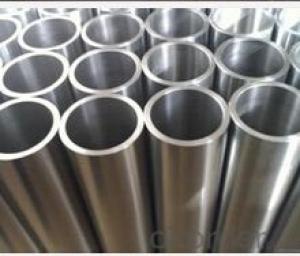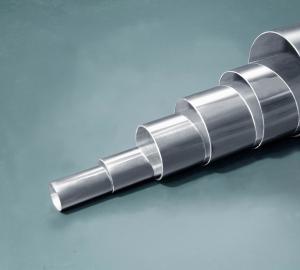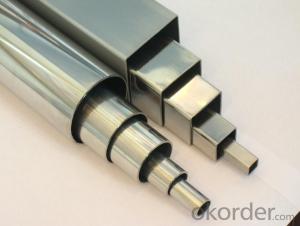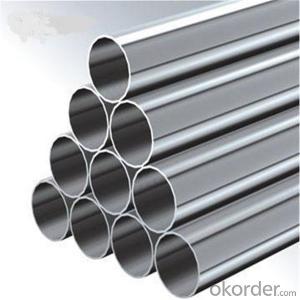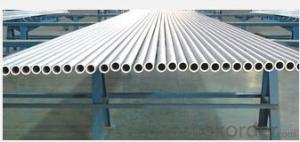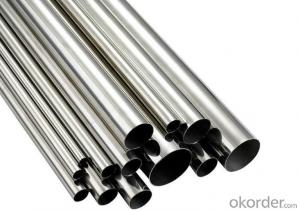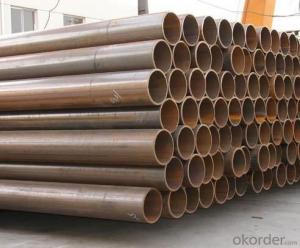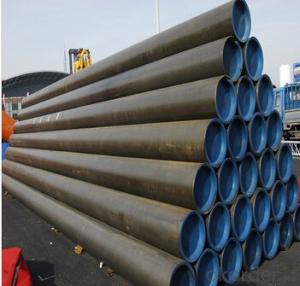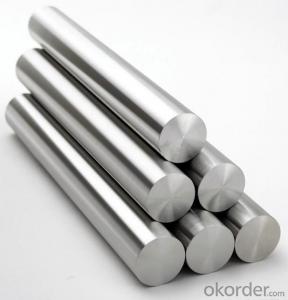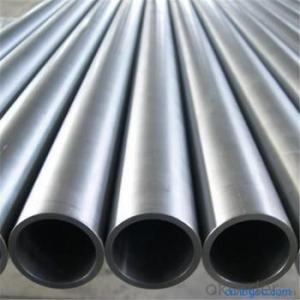STAINLESS STEEL INDUSTRIAL PIPE
- Loading Port:
- China Main Port
- Payment Terms:
- TT OR LC
- Min Order Qty:
- -
- Supply Capability:
- -
OKorder Service Pledge
Quality Product, Order Online Tracking, Timely Delivery
OKorder Financial Service
Credit Rating, Credit Services, Credit Purchasing
You Might Also Like
Specifications
1. Guaranteed material from established steel factories2. Accordance with International standard
3. Attractive 304 price
PRODUCT NAME: STAINLESS STEEL INDUSTRIAL PIPE
| Name | Stainless Steel Industrial Pipe |
| Standard | ASTM, GB, JIS, DIN, EN, AISI |
| Material Grade | TP304 TP304L TP316 TP316L TP347 TP347H TP321 TP321H TP310 TP310S |
| TP410 TP410S TP403 | |
| S31803/S32205 S32750 S32760 | |
| Outer Diameter | Welded Pipe: single slit(Φ8mm-Φ630mm); girth(Φ630mm-Φ3000mm), |
| Thickness | Welded Pipe: single slit(0.5mm-25mm); girth(3mm-30mm) |
| Length | Commonly 5.8 Meters or 6.0 Meters, or as customers' request |
| Tolerance | According to the Standard, +/-10% Commonly. |
| Surface | 180#, 320#, 400# Satin / Hairline, Bright Anneal, Pickle,400#, 500#, 600# or 800# Mirror finish |
| Application | Petrochemical industry, chemical fertilizer industry, oil refining industry, oil and gas industry, light industry and food industry, pulp and paper industry, energy and environmental industries. |
| Test | Flaring test, Flattening test, Bending Test, Hydraulic Test, Eddy Current test |
- Q: Are stainless steel pipes suitable for desalination plants?
- Yes, stainless steel pipes are highly suitable for desalination plants. Stainless steel is corrosion-resistant and has excellent durability, making it ideal for withstanding the harsh conditions and corrosive nature of the desalination process. Additionally, stainless steel pipes offer good heat transfer properties and maintain the quality of water, ensuring a reliable and efficient desalination process.
- Q: Can stainless steel pipes be used for oil refineries?
- Stainless steel pipes are indeed suitable for use in oil refineries due to their durability and resistance to corrosion. This material is capable of handling a wide range of fluids and chemicals commonly found in such facilities. Moreover, the strength and ability to withstand high temperatures and pressure make stainless steel pipes perfect for the transportation and processing of crude oil, refined petroleum products, and other hydrocarbons within the refining industry. Notably, these pipes exhibit outstanding corrosion resistance, which is vital in environments where oil and various chemicals are present. This resistance is instrumental in preventing leakage and ensuring the integrity of the piping system, ultimately enhancing the safety and efficiency of oil refinery operations.
- Q: What is the difference between hot rolled and cold drawn stainless steel pipes?
- Hot rolled stainless steel pipes are made by heating a solid steel billet or ingot to a high temperature and then rolling it into the desired shape and size. This process results in a rougher surface finish and a larger grain structure, which can make the pipe more prone to corrosion. However, hot rolled pipes are generally cheaper and easier to produce in large quantities. On the other hand, cold drawn stainless steel pipes are made by pulling a solid steel billet or bar through a die at room temperature. This process results in a smoother surface finish and a smaller grain structure, which improves the pipe's resistance to corrosion. Cold drawn pipes are typically more expensive and require more time and effort to produce, but they offer higher quality and better performance in various applications. In summary, the main difference between hot rolled and cold drawn stainless steel pipes lies in the manufacturing process and the resulting surface finish and grain structure. Hot rolled pipes are cheaper and easier to produce but may be more susceptible to corrosion, while cold drawn pipes are more expensive and time-consuming to manufacture but offer superior corrosion resistance and overall quality.
- Q: Is galvanized steel pipe stainless steel pipe?
- Galvanized steel pipe is a kind of welded steel pipe, and its essence is hot-dip galvanized coating on the inner and outer surface of welded steel pipe. Hope to be of help to you.
- Q: What does "stainless steel pipe" DN mean?
- Nominal diameter is the size of all piping accessories in the piping system. The nominal diameter is a convenient round integer for reference and is not strictly related to the processing size. The nominal diameter follows the letter "DN" followed by a number sign.
- Q: Are stainless steel pipes suitable for automotive applications?
- Yes, stainless steel pipes are suitable for automotive applications. Stainless steel is a highly durable and corrosion-resistant material, making it ideal for use in automobile components that are exposed to harsh environments, such as exhaust systems and catalytic converters. Stainless steel pipes offer excellent resistance to heat, chemicals, and abrasion, ensuring long-lasting performance in automotive applications. Additionally, stainless steel is lightweight and has high strength, which contributes to improved fuel efficiency and overall vehicle performance.
- Q: What is sanitary stainless steel pipe?
- Passivation layer: after polishing, it is necessary to immerse the steel pipe in the passivation bath, and then use the acid passivation liquid to oxidize the surface of the steel pipe to form a passivation layer, so as to achieve the anti-corrosion effect of the steel pipe
- Q: Can stainless steel pipes be insulated with polyphenylene sulfide?
- No, stainless steel pipes cannot be insulated with polyphenylene sulfide.
- Q: Stainless steel pipes can not be less than the amount of chromium
- General stainless steel chromium content is generally not less than 12%, high even up to 18%. Steel added elements such as chromium, can change the performance of the steel, such as the molecular structure of steel more uniform on the surface of the steel is more easily to form a layer of dense oxide protective film, thereby greatly improving the ability of corrosion-resistant stainless steel. Therefore, stainless steel can resist fire, water, acid, alkali and various solutions to its corrosion, not rust. The scientists found that the internal structure of the steel is more uniform, various components more closely linked to the corrosion of the more difficult the invasion, also attached to the surface with a layer of oxide film, like iron and steel to wear armor, was not naturally easy to rust. Why is stainless steel rust? When the stainless steel tube surface appear brown rust (point) when people are surprised: stainless steel does not rust, rust is stainless steel, steel may be a problem. In fact, this is a lack of understanding of stainless steel one-sided misconceptions. Stainless steel will rust under certain conditions. Stainless steel has the ability to resist atmospheric oxidation - that is, stainless steel, and also has the ability to corrode in medium containing acids, alkalis, and salts - that is, corrosion resistance. But its corrosion resistance is changed with the chemical composition, the mutual state, the condition of use and the type of environmental medium.
- Q: Can stainless steel pipes be insulated with fiberglass?
- Yes, stainless steel pipes can be insulated with fiberglass.
Send your message to us
STAINLESS STEEL INDUSTRIAL PIPE
- Loading Port:
- China Main Port
- Payment Terms:
- TT OR LC
- Min Order Qty:
- -
- Supply Capability:
- -
OKorder Service Pledge
Quality Product, Order Online Tracking, Timely Delivery
OKorder Financial Service
Credit Rating, Credit Services, Credit Purchasing
Similar products
Hot products
Hot Searches
Related keywords
